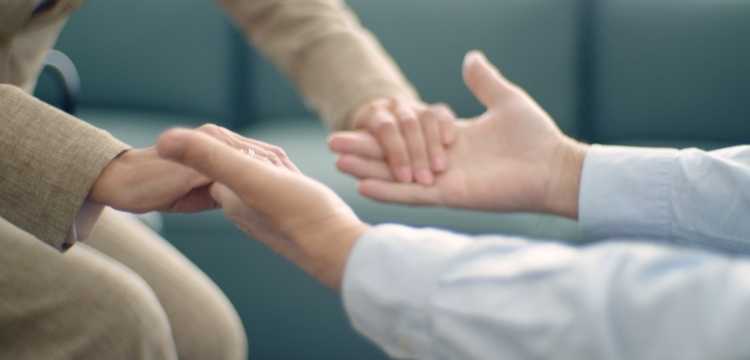From a very young age, I’ve had depression. My depression has come into my life like waves – sometimes a large swell, sometimes a ripple. The surge is always beyond my control and brings with it a blanket of all-consuming lethargy that feels as though I’ve been superglued to my bed for days at a stretch.
My motivation, my hopefulness for life, all gone.
Perhaps it was something I was born with or something I acquired, I’d say probably a little of both. But the cause is of lesser importance to me than the fact that I have it… for life. A hard fact that 1 in 5 Australians – and as recently reported – 1 in 4 young Australians – also have to come to accept.
I’m lucky that my parents are GPs so as I’ve become depressed, I’ve had an army of doctors, psychologists, psychiatrists, prescriptions and therapies thrown at my situation to not only save my life but help me live it better. In this sense, I am incredibly privileged. I am here today, because of our mental health system.
Without that system, I don’t know if I would have ever created Hello Sunday Morning – a movement that now supports one of the largest communities in the world of people changing their relationship with alcohol (which is a depressant).
In January of 2021, I had a phone call from one of my mentors, Professor Pat McGorry. Many people know Pat as the kind of visionary leader responsible for the foundation of Headspace and as Executive Director of Orygen, but few know that he actually still sees clients as a psychiatrist, one of whom he had just finished a session with when I took his call.
He lamented to me how it was lucky he had just seen this patient, caught in the nick of time – a young person who was suicidal who couldn’t get help anywhere else because they were turned away, put on waitlists to the endless exasperation of her parents, who somehow found Pat’s mobile number and made a plea for him to see her.
“I get calls like this every week. There are people who put their hand up for help and are turned away from our system because there just isn’t enough help available,” he said.
I asked Pat how I could help and he asked me to work with him to build a movement of people who can create enough political pressure to change the system. People who all believe that our mental health system can and should be better.
And we know we have to do better.
We commissioned some recent polling by YouGov which found that nearly nine in ten Australians (85%) believe COVID-19 has had a negative impact on Australians’ mental health. Fewer than one in five (16%) say they are ‘very confident’ that they would be able to support someone with mental health challenges, and just one in four (24%) are ‘very confident’ that they would know where to access support. In our own survey, alarmingly, we found that one in three respondents were put on a waitlist to get the help they needed.
By 2030, we want to end mental health waitlists. We NEED this as Australians. We deserve a government that recognises this need.
We believe that all Australians should have someone to turn to and somewhere to go when they experience mental illness – a universal basic therapy for all.
If you put your hand up for help, you should get it. And if you have to wait to get that help, that wait is bolstered by a system of early intervention and prevention that is there, in ubiquity.
We must create a system where no Australian should have to make the kind of desperate calls for help made to Pat each week, and a system where every Australian has access to the kind of care I have received in my darker times of need.
Australians for Mental Health recently launched our Holding Out for Help campaign. We’re incredibly grateful to all who are involved in the campaign – especially including Reuben Styles of Peking Duk.
Through Holding Out for Help, we’re advocating that within the next four years, political leaders commit to three critical reforms:
1. #FixTheWaitlist by establishing a National Patient Waitlist system that engages and tracks people from the moment they put their hand up for support until the moment they get that support. This system should be focused on Australians who live in regional and remote areas, and describe the types and cost of care or services people are waiting for, prioritising whenever possible access to early intervention and support for immediate care.
2. Double the capacity and capability of the mental health system by dramatically and rapidly growing the workforce, from psychiatrists through allied health and nurses to peer workers, as well investing in evidence-based digital interventions to improve our bandwidth to help people living with mental illness.
3. Scale up a national system of physical and digital community mental health hubs, supporting GPs and headspaces, with multidisciplinary teams who can offer ready and bespoke access to children, young people and older adults in the #MissingMiddle.
We need major investment in the mental health system and we need Australians to demand it. Any Australian who has ever been put on an imaginary waitlist to get mental health care, or had this happen to a loved one, we want to add your voice to create a national chorus that cannot be ignored.
We’re calling on all Australians to sign our Holding Out for Help petition via www.holdingoutforhelp.com
If you believe that we need to build such a system, join us and help us build it.
Chris Raine is the Founder of Hello Sunday Morning, Campaign Director of Australians for Mental Health, and was Queensland’s Young Australian of the Year 2012.


































































































































































